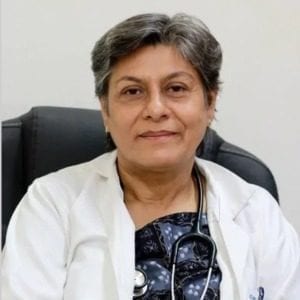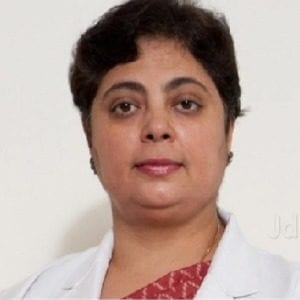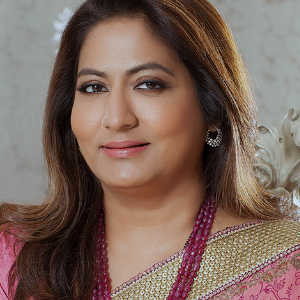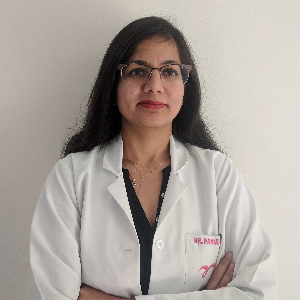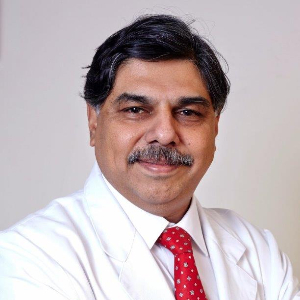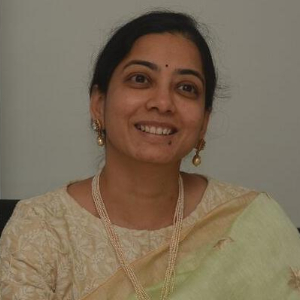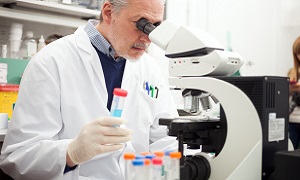Best Doctors in India for Genetic Testing
- Obstetrician & Gynaecologist, New Delhi, India
- Over 30 years’ experience
Profile Highlights:
- With around 30 years of experience, Dr Geeta Chadha is one of the leading gynecologists in Delhi. She has worked at Indraprastha Apollo Hospitals for around 22 years. Earlier she worked as a gynecologist at Kolmet Hospital as well as Sharma Nursing Home in New Delhi.
- Dr. Geeta Chadha has multiple expertise such as minimally invasive surgery like organ-preserving in women with benign gynae conditions plus infertility and high-risk obstetrics.
- Sr Consultant Doctor in Obstetrics & Gynaecology, Gurugram, India
- Over 30 years’ experience
Profile Highlights:
- Dr. Manavita Mahajan has been a practicing obstetrician & gynecologist in Gurugram for the last 30 years.
- Known for being a strong proponent of safe motherhood practices, Dr. Mahajan has worked to implement these practices in her hospital practice as well. She has also been a speaker and faculty on gynecological laparoscopy at several national conferences because of her laparoscopic surgical skills.
- Dr. Mahajan is also a trainer and faculty in various educational programs.
- Obstetrician & Gynaecologist, Gurugram, India
- Over 42 years’ experience
Profile Highlights:
- Dr. Suneeta Mittal is a renowned name in the field of obstetrics & gynecology who has done national as well as international research in women’s health leading to the introduction of emergency contraception & Medical abortion in India.
- Previously, Dr. Suneeta Mittal has served as a professor as well as head of the department of obstetrics & gynecology at All India Institute of Medical Science, New Delhi.
- She has multiple areas of expertise, such as infertility, adolescent reproductive health, endocrinological disorders, laparoscopic and hysteroscopy surgeries, as well as high-risk pregnancies.
- IVF Specialist & Gynaecologist, Gurugram, India
- Over 30 years’ experience
Profile Highlights:
- Dr. Nandita Palshetkar is one of the best and leading IVF specialists in India with expertise in all kinds of infertility treatment.
- She along with Dr. Hrishikesh Pai is responsible for starting Assisted Laser Hatching in India in 1998 and also delivered the first laser hatching twins in the country.
- With training in IVF and Micromanipulation from the University of Ghent, Belgium, Dr. Nandita Palshetkar has helped more than 25,000 couples to start a family. She along with her team of experts performs more than 3000 ART cycles every year.
- IVF Specialist & Gynaecologist, New Delhi, India
- Over 20 years’ experience
Profile Highlights:
- Dr. Parul Katiyar is a well-known Obstetrician and Gynecologist in India with expertise in Reproductive medicine and the management of infertility.
- She has close to 2 decades of experience in gynecology and obstetrics and over a decade of experience in infertility and IVF. She provides services for the management of primary and secondary infertility in couples.
- She is experienced in all types of assisted reproductive techniques and has been part of and has assisted in more than 3000 ART cycles of all forms for patients from various parts of the world.
- IVF Specialist & Gynaecologist, Gurugram, India
- Over 35 years’ experience
Profile Highlights:
- Dr. Hrishikesh Pai is a highly accomplished gynecologist and obstetrician in India and a leading IVF specialist in the country.
- He has set up several IVF centers all across the country and is associated with several hospitals as the head of the IVF department in collaboration with Bloom IVF Group.
- Dr. Hrishikesh Pai started the first Assisted Laser Hatching unit as well as the first micromanipulation procedure at Bloom IVF. He also introduced several other fertility treatment procedures and services such as Oocyte freezing and ovarian tissue freezing for patients with cancer.
- He holds an extensive experience of 35+ years in the field of IVF and fertility treatment and has helped hundreds of couples conceive and start a family.
- IVF Expert & Gynecologist, New Delhi, India
- Over 20 years’ experience
Profile Highlights:
- Dr. Kaberi Banerjee is a renowned Gynecologist in Delhi and one of leading infertility and IVF specialists in India.
- Along with her team of embryologists and experts, Dr. Banerjee has helped in over 10000 pregnancies through ART (Assisted reproductive techniques).
- She received her training in IVF and fertility treatment from the renowned Guys and St Thomas Hospital in London and also served as the Clinical Fellow at the Hospital for a year.
- IVF Specialist & Gynaecologist, Hyderabad, India
- Over 10 years’ experience
Profile Highlights:
- Dr. Lakshmi Chirumamilla is a Gynecologist and Obstetrician based out of Hyderabad and specializes in all types of Assisted Reproductive Techniques (ART).
- She has been part of various infertility clinics in the UK as an Infertility Specialist and is also a trainer for assisted reproduction, IUI, embryo transfer, and the management of infertile couples accredited by British Fertility Society.
- Dr. Chirumamilla has completed her certificate courses in assisted reproduction and infertility under the aegis of the British Fertility Society as well as the Royal College of Obstetricians and Gynecologists.
- IVF Specialist & Gynaecologist, New Delhi, India
- Over 22 years’ experience
Profile Highlights:
- Dr. Sunita Arora is a leading infertility specialist in New Delhi who specializes in IUI, IVF, laparoscopies, hysteroscopies, and repeated IVF failure cases
- After completing her education, she joined the Department of Obstetrics and Gynecology, at Govt Medical College as a consultant. Later she moved to Mount Sinai Hospital, New York, from where she received her training in IVF and Reproductive Medicine.
- IVF Specialist & Gynaecologist, Gurugram, India
- Over 20 years’ experience
Profile Highlights:
- Dr. Meenu Handa is a gynecologist and IVF specialist, who serves as the Unit Head of the Fortis Bloom IVF Centre at Fortis Memorial Research Institute in Gurugram.
- She specializes in multiple areas which include male infertility, recurrent IVF specialties, intracytoplasmic sperm injection, and endoscopic fertility surgeries.
Best Hospitals in India for Genetic Testing
Rela Hospital, Chennai
- City: Chennai, India
Hospital Highlights:
- RIMC is a multi-specialty hospital in a sprawling area of 36 acres located in Chromepet, Chennai, Tamil Nadu, India.
- The facility has 450 beds including 130 critical care beds, 9 operating rooms, modern reference laboratories and radiology services, and is conveniently located near road, rail and air transportation.
- RIMC is led and managed by world-renowned physicians committed to healthcare.
- RIMC offers the broadest range of clinical care, education, and research. The hospital offers state-of-the-art technology and modern treatment facilities designed to provide health care at an affordable cost.
- Rela Institute is driven by patient needs, comfort and confidence.
CARE Hospitals, Hyderabad
- City: Hyderabad, India
Hospital Highlights:
- CARE Hospitals were established in the year 2000, by CARE Group.
- The multispecialty hospital has 435 beds, including 120 critical care beds, with an annual inflow of 180000 outpatients and 16,000 in-patients.
- The hospital provides specialty medical services in Cardiology, Cardiothoracic Surgery, Pediatric Cardiology, Pediatric Cardiothoracic Surgery, Neurology, Neurosurgery, Nephrology, and Urology.
- The hospital has the first dual source, 128 slice CT scanner (for high precision cardiac imaging) – the first of its kind in south India.
- The hospital offers a wide range of accommodation facilities for the convenience of its varied patient base, ranging from general wards to super deluxe rooms.
Fortis Hiranandani Hospital, Mumbai
- City: Mumbai, India
Hospital Highlights:
- Fortis Hiranandani hospital was established in 2007.
- The hospital is an advanced tertiary care, multi-specialty hospital equipped with 149 beds.
- The hospital is equipped with a super ICU to provide emergency medical care to critically ill patients.
- The hospital is NABH accredited.
- The critical care facility in the hospital is augmented with the state-of-the-art facilities that facilitate speedier diagnosis and efficient monitoring.
- The hospital provides specialty medical services in cardiology, orthopedic science, pediatric science, neurology, diabetic care, urology, nephrology, ENT, obstetrics, gynecology, cosmetic surgery, bariatric surgery, neuro and spine care.
Fortis Hospital, Anandpur, Kolkata
- City: Kolkata, India
Hospital Highlights:
- Fortis Hospital, Anandapur, Kolkata is a world-class super-speciality equipped with the latest technologies in the medical world.
- The hospital is NABH accredited.
- This state-of-the-art facility specializes in cardiology and cardiac surgery, urology, nephrology, neurosciences, orthopaedics, digestive care, emergency care and critical care.
- The hospital, governed by integrated Building Management System (IBMS), has a pneumatic chute system, for quick vertical and horizontal transportation between floors, facilitating speedy transfer of patient specimens, documents, reports, and medicines to the concerned departments.
- The hospital also has a nephrology department with over 28 advanced dialysis units.
Fortis Hospital Banerghatta, Bengaluru
- City: Bengaluru, India
Hospital Highlights:
- Fortis Hospital Bannerghatta, Bengaluru was established in 2006.
- The hospital is a 276 bedded multi-specialty tertiary care facility.
- The hospital specializes in cutting-edge medical technology and dedicated patient care services.
- The hospital is equipped with state-of-the-art technologies like trans-radial angioplasty, trans-abdominal cardiac surgery, and computerized TKR navigation surgery.
- The hospital provides specialty medical services in cardiology, cardiac surgery, orthopedics, neurology, neuro-surgery, GI, and Minimal Access Surgery (MAS).
Gleneagles Global Hospital, Parel, Mumbai
- City: Mumbai, India
Hospital Highlights:
- Gleneagles Global Hospital The 450-bed facility comprises of 17-stories, housing state-of-the-art infrastructure, and advanced medical care facilities.
- The hospital offers end-to-end clinical, surgical, and diagnostic services. It is equipped with a team of eminent medical professionals aided by qualified nurses and medical staff
- The Hospital offers advanced Endoscopic procedures, Hepatobiliary and Liver Surgeries, Surgical and Medical Gastroenterology, Bariatric Surgery, and Robotic surgery.
- The hospital is a center of excellence for Orthopedics, Joint Replacement, Knee Replacement, and Hip Replacement surgery.
Manipal Hospital, Dwarka, Delhi
- City: New Delhi, India
Hospital Highlights:
- Manipal Hospitals, Dwarka, is a super-specialty hospital in Dwarka, New Delhi, which is a part of Manipal Hospitals Group.
- The hospital aims to provide the best treatment on par with international standards at a fraction of the cost.
- Equipped with 380 beds, the hospital is also one of the new age hospitals which are equipped fully with state-of-the-art infrastructure, cutting-edge technology as well as the latest and advanced clinical practices. The hospital also has 13 modular Operation theatres with 118 beds which are solely meant for critical care.
- The hospital comprises internationally acclaimed doctors and highly professional and experienced hospital and medical staff who are able to provide preventive, therapeutic, and diagnostic services all under one roof.
Paras Hospital, Gurugram
- City: Gurugram, India
Hospital Highlights:
- Paras hospital was established in 2006 and is the 250 bedded flagship hospital of Paras Healthcare.
- The is supported by a team of doctors of international and national repute.
- The hospital is NABH accredited and also the first hospital in the region to have a NABL accredited laboratory.
- The hospital provides specialty medical services in around 55 departments including Neurosciences, Joint Replacement, Mother & Child Care, Minimal Invasive Surgery, Gynecology and Obstetrics, Ophthalmology, Dermatology, Endocrinology, Rheumatology, Cosmetic and Plastic surgery.
- The hospital is equipped with state-of-the-art technologies.
S L Raheja Hospital, Mahim, Mumbai
- City: Mumbai, India
Hospital Highlights:
- SL Raheja hospital is a 140-bed multi-specialty tertiary care hospital that is being managed by Fortis Healthcare Ltd.
- The hospital is a benchmark in healthcare and medical facilities in the neighborhood of Mahim & the western suburbs.
- L.Raheja Hospital, Mahim has one of the most effective ICU and Casualty care services.
- The hospital provides specialty medical services in Cardiology, Oncology, Neurology, Orthopedics, Mother & Child Care, and in Diabetes.
Wockhardt Hospitals, Mumbai
- City: Mumbai, India
Hospital Highlights:
- Wockhardt Hospitals were established in the year 1973, originally called First Hospitals and Heart Institute.
- Wockhardt Hospitals are super specialty health care networks in India, nurtured by Wockhardt Ltd, India’s 5th largest Pharmaceutical and Healthcare company.
- Wockhardt Hospitals is associated with Partners Harvard Medical International, an international arm of Harvard Medical School, USA.
- Wockhardt Heart Hospital performed India’s first endoscopic heart surgery.
- The hospital has a state-of-the-art infrastructure equipped with the latest technologies and modern equipment.
- It has special Centers of Excellence dedicated to the major specialties to provide hassle-free and high-quality clinical care.
Genetic Testing
Genetic testing is a procedure for examining your DNA. Your DNA is your chemical database which carries instructions for the functions of the body. Genetic testing can reveal any changes in your genes which can lead to any illness or disease.
Genetic testing is able to provide significant information for diagnosing, treating as well as preventing illness, but there are few limitations. For example, for a healthy person, a positive result from genetic testing doesn’t always mean that you’ll be developing a disease. In some other cases, a negative result doesn’t always guarantee that you won’t have any disorder either.
Talking to your doctor, a medical geneticist or a genetic counselor about what you will do with the results is an important step in the process of genetic testing.
Purpose
Genetic testing plays a very important role in determining the risk of developing certain kinds of diseases. It can also play a significant role in screening and sometimes even in medical treatment. There are different types of genetic testing which are done for different reasons:
Diagnostic testing- If you have symptoms of a disease that may be caused by genetic changes, sometimes called mutated genes, genetic testing can reveal if you have the suspected disorder. For example, genetic testing may be used to confirm a diagnosis of cystic fibrosis or Huntington’s disease.
Carrier testing- If you have a history in your family of a genetic disorder, such as sickle cell anemia or cystic fibrosis or if you belong to an ethnic group having a higher risk of a certain genetic disorder, you can choose to have genetic testing before reproduction. An expanded carrier screening test is able to detect genes associated with a wide variety of genetic diseases and mutations. It can also identify if you and your partner are carriers for the same conditions.
Pharmacogenetics- If you have a particular disease or condition, genetic testing can help in determining what medication and dosage will be effective and beneficial for you.
Presymptomatic and predictive testing- If you have a history of a genetic condition in your family, you can get genetic testing before you show any symptoms. This can reveal if you’re at risk of developing that condition as well. This type of test can be useful in identifying your risk of certain types of colorectal cancer.
Prenatal testing- For women who are pregnant, genetic tests can help in detecting any type of abnormalities in your baby’s genes.
Preimplantation testing- Also termed as preimplantation genetic diagnosis, you can consider this test when you attempt to conceive a child through in vitro fertilization. The embryos are screened for genetic abnormalities. Embryos that are without any abnormalities are implanted in the uterus for achieving pregnancy.
Newborn screening- This is a common type of genetic testing. In the US, all states require newborns to be tested for certain genetic and metabolic abnormalities that might lead to specific conditions. This type of testing is important because if a disorder is detected, treatments can begin immediately.
Preparation
Before you go for genetic testing, it is important to gather information about your family’s medical history as much as possible. After this, you need to talk with your doctor or genetic counselor about your personal and family medical history to understand your risk better. You can ask questions as well as discuss any concerns about genetic testing at the meeting.
If you’re getting tested for a genetic disorder that runs in families, you can consider discussing your decision for undergoing genetic testing with your family.
It is also important to note that not all health insurance policies pay for genetic testing. Therefore, you should check with your insurance provider, if you will be covered.
Procedure
Depending on the type of test you are undergoing, a sample of your blood, skin, amniotic fluid or any other tissue will be collected. It will then be sent to a laboratory for analysis.
Blood sample
Cheek swab
For some tests, a swab sample is collected from the inside of the cheek.
Amniocentesis
Amniocentesis is a prenatal genetic test, where your doctor inserts a thin, hollow needle through your abdominal wall and into your uterus for collecting a small amount of amniotic fluid for testing.
Chorionic villus sampling
Chorionic villus sampling is another prenatal genetic test, where your doctor takes a tissue sample from the placenta. Depending on your situation, the sample may be taken with a tube, also known as a catheter or through your cervix or through your abdominal wall and uterus with the help of a thin needle.
Results
The amount of time it takes for you to receive the results of your test can vary. Usually, it depends on the type of test and your healthcare center.
If the results are positive, that means that they detected the genetic change that was being tested for. If you receive a positive test, the steps you need to take will depend on the reason you had the testing.
If the purpose is to:
Diagnose a specific disease or condition, then a positive result helps you and your doctor to determine the right treatment as well as the management plan.
Find out if you carry a gene that can cause any disease in your child, then your doctor, medical geneticist or a genetic counselor can help you determine how likely it is for your child to actually develop the disease. The test results can provide information which you along with your partner can consider when you make family planning decisions.
Determine if you might develop a certain disease, then you need to keep in mind that a positive test doesn’t necessarily mean you’ll get that disorder. For example, having a breast cancer gene doesn’t indicate that you will certainly be getting breast cancer. However, it means you’re at high risk of developing it at some point in your life. However, with some conditions, such as Huntington’s disease, if you have the altered gene it does indicate that the disease will develop eventually.
Talk to your doctor about what your positive result could mean for you. In some cases, you can make certain lifestyle changes for reducing your risk of developing a disease. The results can also help you make choices related to your treatment plan, family planning, careers as well as insurance coverage.
Plus, you may also choose to take part in research or registries related to your genetic disorder or condition. These options can help you stay updated with any new developments in prevention and treatment.
Negative results
A negative result means that a mutated gene was not detected in your test. This can be reassuring, though it is not a 100 percent guarantee that you will not be having the disorder. The accuracy of genetic tests for detecting mutated genes can vary and it generally depends on the condition which is being tested for and whether or not the gene mutation was identified previously in a family member.
Even if you don’t have the mutated gene, this also doesn’t necessarily mean that you will never be getting the disease. For example, the majority of people who develop breast cancer don’t have a breast cancer gene. It is also noteworthy that genetic testing can’t detect all genetic defects.
Risks
There is generally almost no physical risk in genetic testing. However, prenatal testing such as amniocentesis can sometimes have a risk of pregnancy loss, i.e. miscarriage.
Genetic testing can lead to emotional, social and financial risks as well. Discuss the risks as well as the benefits of genetic testing with a qualified doctor, a medical geneticist or a genetic counselor before you go for genetic testing.

